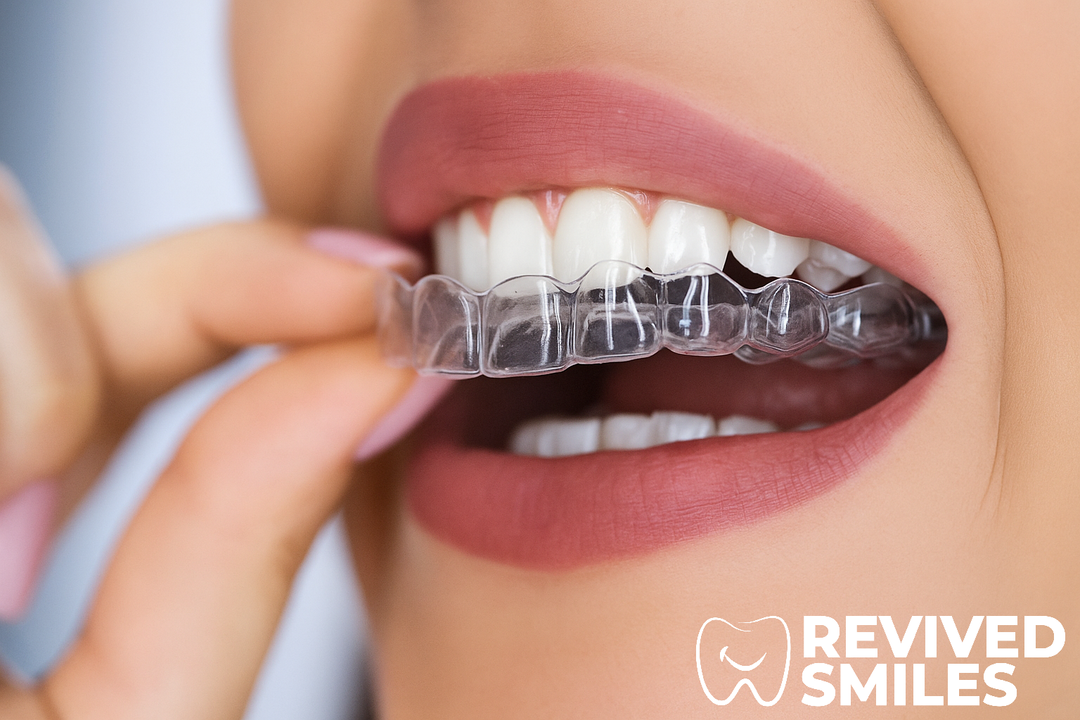¿Qué son las carillas dentales? Todo lo que necesitas saber

Hay algo magnético en una sonrisa segura. Atrae a la gente, crea una conexión y deja una impresión duradera. Pero no todos se despiertan con una sonrisa perfecta para la cámara, y eso está perfectamente bien.
Una carilla dental es una solución cosmética destinada a mejorar el aspecto de los dientes cubriendo y transformando su superficie frontal.
Aquí es donde entran en escena las carillas dentales. Estas pequeñas maravillas cosméticas son un pilar de la odontología estética moderna , capaces de transformar por completo la percepción que tienes de tus dientes, a menudo en tan solo un par de visitas.
Ya sea que esté buscando una mejora sutil o un cambio de imagen dramático de su sonrisa, las carillas pueden ser la solución que ha estado buscando.
¿Qué son exactamente las carillas dentales?
Las carillas dentales son láminas ultrafinas hechas a medida que se colocan solo en la superficie frontal de los dientes. Imagínelas como fundas elegantes y de aspecto natural que realzan su sonrisa al disimular problemas estéticos como decoloración, dientes astillados, deformes o espacios entre ellos.
Están diseñadas para que coincidan con sus dientes naturales, solo que más brillantes, suaves y pulidos. Los dentistas utilizan su experiencia para planificar y aplicar las carillas, garantizando resultados óptimos y una técnica adecuada.
Desde disimular manchas hasta remodelar bordes irregulares, las carillas ofrecen beneficios estéticos y protectores. Estas carillas, hechas a medida, se unen con cemento dental resistente, lo que les otorga una durabilidad que dura años.
La mayoría de las carillas se consideran permanentes porque están unidas físicamente a los dientes y no son reversibles una vez aplicadas, a diferencia de las opciones temporales o sin preparación.
Ya sea una carilla o una transformación completa de la sonrisa, las carillas cubren una amplia gama de problemas estéticos y al mismo tiempo preservan gran parte de la estructura natural de sus dientes .
Tipos de carillas dentales: porcelana vs. composite
Elegir entre carillas de porcelana y de composite es como elegir entre un coche de lujo y un hatchback fiable: ambos cumplen su función, pero cada uno tiene sus ventajas. Una carilla de composite es un tipo de carilla dental hecha de resina compuesta que ofrece una solución rápida y económica para mejorar la apariencia de los dientes.
En cambio, una carilla de porcelana es una lámina hecha a medida de porcelana, conocida por su durabilidad, resistencia a las manchas y apariencia natural, lo que la hace ideal para la remodelación de la sonrisa. Los dos tipos principales de carillas que se utilizan en procedimientos cosméticos son las de porcelana y las de resina compuesta.
Carillas de porcelana
Las carillas de porcelana tradicionales son la mejor opción. Cada carilla se fabrica a medida en un laboratorio dental con materiales avanzados que replican la translucidez del esmalte dental natural, proporcionando mejoras estéticas excepcionales como blanqueamiento, remodelación o cierre de espacios interdentales. Estas carillas se mantienen brillantes durante años gracias a su alta resistencia a las manchas causadas por sustancias como el vino tinto o el café.
Requieren la eliminación del esmalte y se consideran carillas permanentes. Pero la recompensa es significativa: resultados impresionantes que pueden durar de 10 a 15 años con el cuidado adecuado y revisiones regulares. Si busca durabilidad y un aspecto impecable, las carillas tradicionales son difíciles de superar.
Carillas compuestas
Una carilla de composite está hecha de resina compuesta y se esculpe directamente sobre los dientes en la consulta del dentista. Este enfoque directo le permite lucir una sonrisa completamente nueva en una sola visita.
Aunque su duración puede ser menor que la de las opciones de porcelana (normalmente de 5 a 7 años), el material compuesto ofrece una solución más económica. Las carillas de resina compuesta se pueden retocar fácilmente, lo que las hace ideales para soluciones estéticas rápidas.
También puede explorar las carillas sin preparación, que implican una preparación mínima o nula del diente, preservando más del esmalte dental natural.
¿Aún no te decides? Explora la colección de carillas de Revived Smiles, con materiales confiables y de aspecto natural.
El procedimiento de carillas: qué esperar
Colocarse carillas es un proceso sencillo y sin complicaciones en su consultorio dental local. La mayoría de los pacientes completan su transformación en tan solo unas semanas.
Paso 1: Consulta
Su dentista evaluará su salud bucal y sus objetivos estéticos. ¿Desea aclarar su sonrisa? ¿Cubrir un diente astillado? ¿Cerrar un espacio? Evaluará su línea de encías, la estructura dental y su historial dental para asegurarse de que sea un buen candidato.
Paso 2: Preparación del diente
Para colocar carillas tradicionales o sin preparación, su dentista comenzará con la preparación del diente. Esto implica retirar una fina capa de esmalte dental para asegurar un ajuste perfecto de la carilla. La cantidad de esmalte que se retira varía según se trate de carillas de porcelana o de composite.
Si opta por las carillas de porcelana tradicionales, su dentista tomará impresiones y las enviará a un Laboratorio dental . Se suelen colocar carillas temporales para proteger los dientes mientras se fabrican las permanentes.
Paso 3: Colocación de la carilla
Una vez listas las carillas, se unirán a sus dientes naturales con cemento dental. Una luz especial endurece el cemento y su dentista realizará los ajustes finales para garantizar una apariencia y sensación naturales.
¿El resultado? Una mejora personalizada y duradera para tu sonrisa.
Los beneficios de las carillas dentales
Las carillas dentales no son solo un procedimiento estético. Ofrecen armonía estética, protección funcional y confianza en un solo producto.
-
Aclarar los dientes profundamente manchados o descoloridos cuando el blanqueamiento dental no es efectivo
-
Cubra dientes rotos, astillados o deformes.
-
Rellena pequeños espacios y nivela la línea de las encías para una sonrisa equilibrada.
-
Cree una apariencia simétrica y uniforme sin necesidad de brackets ni corona dental.
Si se aplican correctamente, las carillas lucen como si siempre hubieran formado parte de los dientes naturales. La Asociación Dental Americana las reconoce como una opción confiable para muchos problemas estéticos.
Consejos para el mantenimiento y cuidado de las carillas
Buenas noticias: cuidar las carillas es casi idéntico a cuidar los dientes naturales. Un poco de atención diaria puede prolongar aún más la vida de las carillas.
-
Cepíllese los dientes dos veces al día con un cepillo de dientes de cerdas suaves y una pasta de dientes no abrasiva.
-
Use hilo dental diariamente para mantener la salud bucal y proteger los bordes de sus carillas.
-
Evite masticar objetos duros como bolígrafos, hielo o caramelos duros.
-
Reduzca el consumo de alimentos que provocan manchas, como el vino tinto y las bayas, especialmente para las carillas de composite.
-
Visite a su dentista regularmente para limpiezas y chequeos.
-
Considere una protector nocturno si rechinas los dientes
Siga estos consejos y protegerá su inversión y disfrutará de una sonrisa siempre brillante.
Costo y seguro: ¿Qué debe esperar?
Lo entendemos, las carillas son una inversión. Pero también pueden ser una de las medidas más gratificantes y que más confianza te aporten.
-
Carillas de porcelana: $900 a $2,500 por diente
-
Carillas de resina compuesta: $250 a $1,500 por diente
Los precios varían según tu ubicación, la experiencia de tu dentista y si te colocas una sola carilla o un juego completo. La mayoría de los seguros no cubren las carillas, ya que se clasifican como odontología cosmética. Sin embargo, si necesitas una carilla para restaurar un diente roto o astillado, Puede aplicarse cobertura parcial .
Pregunte a su proveedor y consultorio dental sobre planes de pago u opciones de financiación.
Carillas vs. otras opciones de odontología cosmética

¿Intenta decidir entre carillas y otros tratamientos cosméticos? Aquí le mostramos una comparación:
Las carillas removibles son un tipo de carilla temporal que se puede quitar fácilmente y ofrece una alternativa no permanente a las opciones tradicionales.
Blanqueamiento dental
Ideal para eliminar manchas superficiales, pero no es efectivo para decoloraciones más profundas ni para restaurar la estructura dental. Ideal para muelas o para un pulido rápido.
Adhesión dental
Utiliza material compuesto para reparar pequeñas astillas y grietas. Es rápido y económico, pero carece de la durabilidad y el brillo de las carillas.
Coronas dentales
Las coronas cubren toda la estructura dental y son más adecuadas para dientes gravemente dañados o cariados. Requieren una mayor eliminación del esmalte y son más invasivas que las carillas.
Carillas removibles y a presión
Las carillas a presión (o carillas pop-on) pueden ofrecer mejoras temporales, pero a menudo carecen del ajuste personalizado, la durabilidad y la apariencia natural de las carillas permanentes.
Por qué las carillas son un éxito
Las carillas logran el equilibrio perfecto: mínimamente invasivas, duraderas y estéticamente superiores. Ya sea que opte por carillas tradicionales o sin preparación, el resultado es una sonrisa que se ve y se siente como la suya.
Vida útil y reemplazo de carillas
¿Cuánto duran las carillas? Con el cuidado adecuado, bastante.
-
Carillas de porcelana: 10 a 15 años
-
Carillas de resina compuesta: 5 a 7 años
Podrían necesitarse carillas nuevas si las actuales se desgastan, se manchan o se aflojan. Reemplazarlas suele ser más sencillo que el procedimiento inicial.
Proteja sus carillas contra daños evitando alimentos crujientes, morder objetos duros y manteniéndose al tanto de su rutina de salud bucal.
Carillas indirectas vs. directas: comprensión del proceso
Estos términos se refieren a cómo y dónde se crean y aplican sus carillas.
-
Las carillas directas se moldean y se aplican directamente en la consulta del dentista, utilizando materiales de resina compuesta. Son rápidas y eficientes, ideales para problemas menores.
-
Las carillas indirectas se envían a un laboratorio dental para su fabricación. Este método, generalmente utilizado para las carillas de porcelana tradicionales, ofrece precisión y durabilidad.
Ambos tipos tienen su lugar, dependiendo de tus objetivos cosméticos y la salud de tus dientes naturales.
Preguntas frecuentes sobre las carillas dentales
¿Cuánto duran las carillas dentales?
Porcelana: 10-15 años. Composite: 5-7 años. Con el cuidado adecuado, pueden durar incluso más.
¿Es doloroso colocarse carillas dentales?
La mayoría de los pacientes experimentan poca o ninguna molestia, especialmente con carillas sin preparación. La eliminación del esmalte es mínima y se utiliza anestesia local.
¿Las carillas pueden mancharse como los dientes naturales?
Las carillas de porcelana resisten mejor las manchas que los dientes naturales. Las carillas de composite pueden decolorarse con mayor facilidad si no se mantienen.
¿Cuál es el costo promedio por carilla?
Espere pagar entre $250 y $2,500 dependiendo del tipo, material y dentista.
¿Cómo cuido mis carillas diariamente?
Cepíllese los dientes con un cepillo de cerdas suaves , evite los alimentos duros y visite a su dentista periódicamente.
¿Puedo quitarme las carillas si cambio de opinión?
Las carillas se consideran permanentes porque requieren la eliminación del esmalte. Sin embargo, se pueden colocar carillas nuevas en lugar de las antiguas según sea necesario.
¿Quién es un buen candidato para las carillas dentales?
Si tiene encías sanas y dientes en buen estado y desea corregir problemas estéticos como dientes rotos o decoloración, es probable que sea un buen candidato.
¿Puedo colocarme carillas si tengo enfermedad de las encías o dientes no saludables?
Es fundamental tratar la enfermedad periodontal o cualquier problema de salud bucal subyacente antes de colocarse carillas. Su dentista le indicará si es seguro proceder.
Reflexiones finales: ¿Son las carillas adecuadas para usted?
Las carillas dentales son más que una simple mejora estética. Sirven para recuperar la confianza, refinar tu apariencia y hacer que tu sonrisa brille.
Ya sea que desee una reparación individual o un cambio de imagen completo, hay una solución de carillas perfecta. Explore nuestra Colección de Carillas Revived para obtener más información y dar el primer paso hacia la sonrisa radiante que se merece.





Dejar un comentario